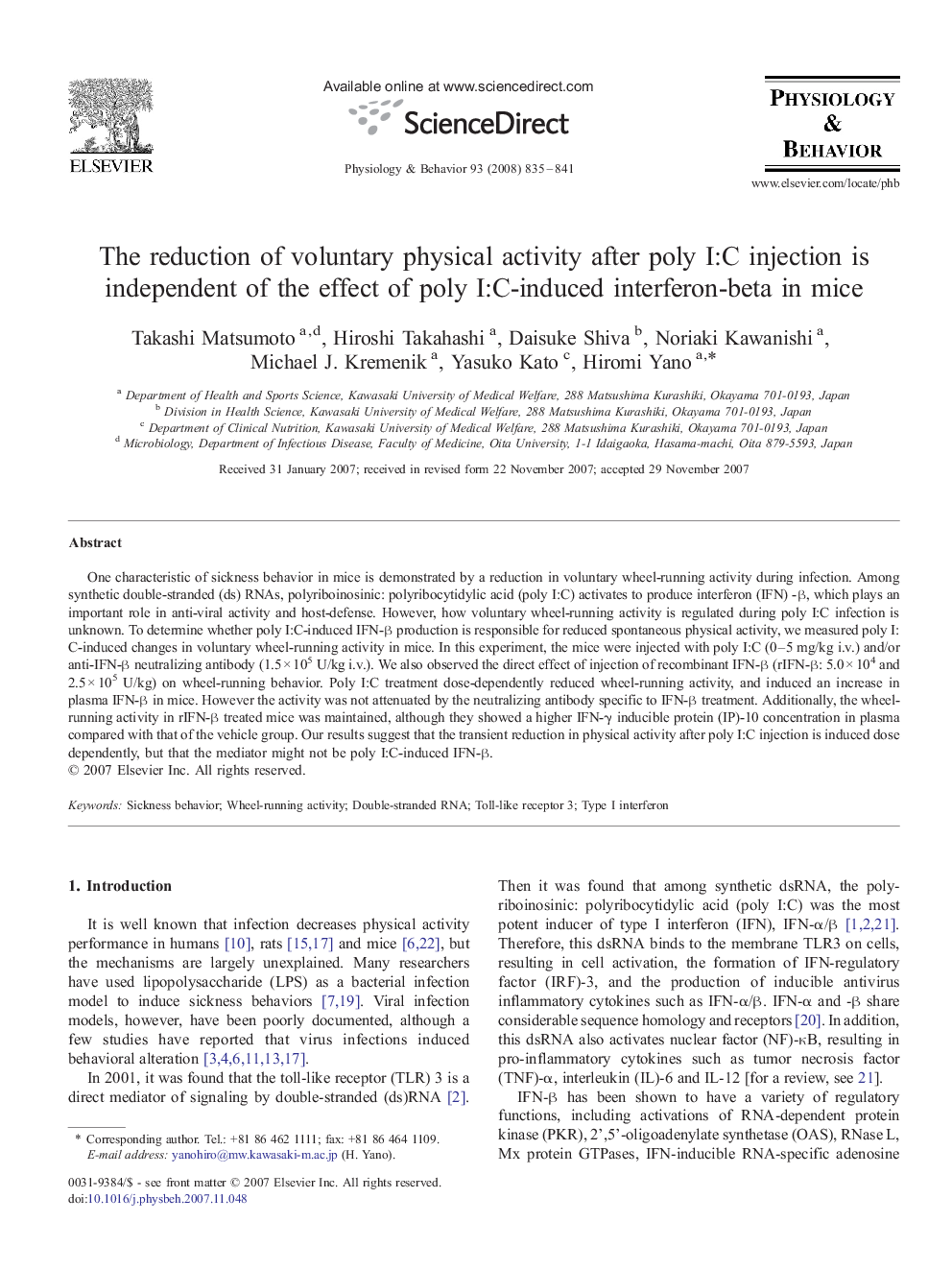| Article ID | Journal | Published Year | Pages | File Type |
|---|---|---|---|---|
| 2845549 | Physiology & Behavior | 2008 | 7 Pages |
One characteristic of sickness behavior in mice is demonstrated by a reduction in voluntary wheel-running activity during infection. Among synthetic double-stranded (ds) RNAs, polyriboinosinic: polyribocytidylic acid (poly I:C) activates to produce interferon (IFN) -β, which plays an important role in anti-viral activity and host-defense. However, how voluntary wheel-running activity is regulated during poly I:C infection is unknown. To determine whether poly I:C-induced IFN-β production is responsible for reduced spontaneous physical activity, we measured poly I:C-induced changes in voluntary wheel-running activity in mice. In this experiment, the mice were injected with poly I:C (0–5 mg/kg i.v.) and/or anti-IFN-β neutralizing antibody (1.5 × 105 U/kg i.v.). We also observed the direct effect of injection of recombinant IFN-β (rIFN-β: 5.0 × 104 and 2.5 × 105 U/kg) on wheel-running behavior. Poly I:C treatment dose-dependently reduced wheel-running activity, and induced an increase in plasma IFN-β in mice. However the activity was not attenuated by the neutralizing antibody specific to IFN-β treatment. Additionally, the wheel-running activity in rIFN-β treated mice was maintained, although they showed a higher IFN-γ inducible protein (IP)-10 concentration in plasma compared with that of the vehicle group. Our results suggest that the transient reduction in physical activity after poly I:C injection is induced dose dependently, but that the mediator might not be poly I:C-induced IFN-β.
